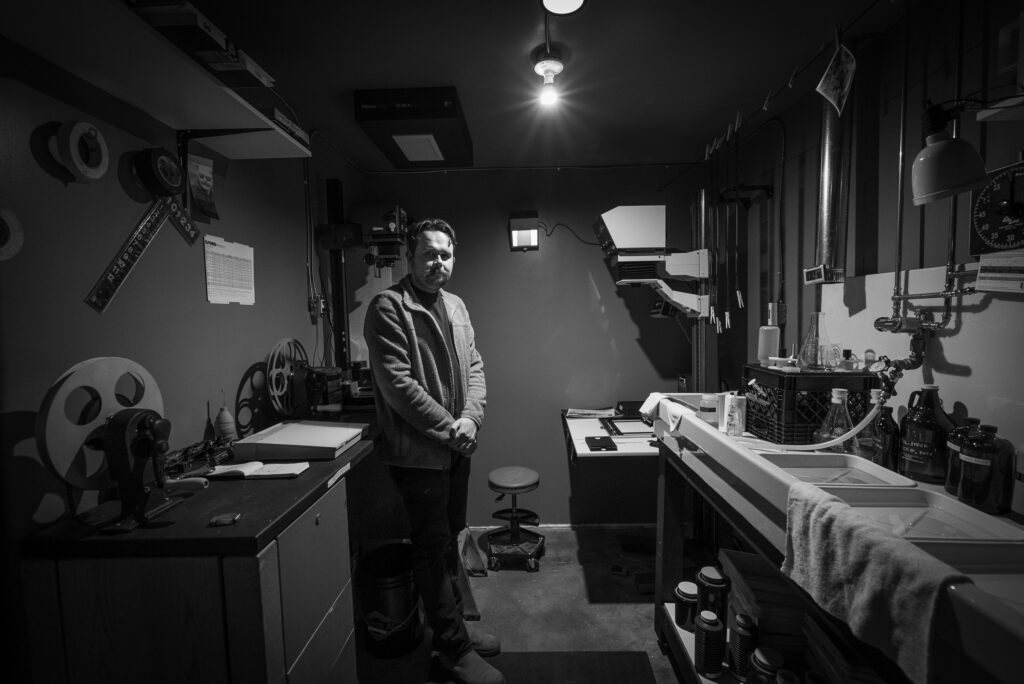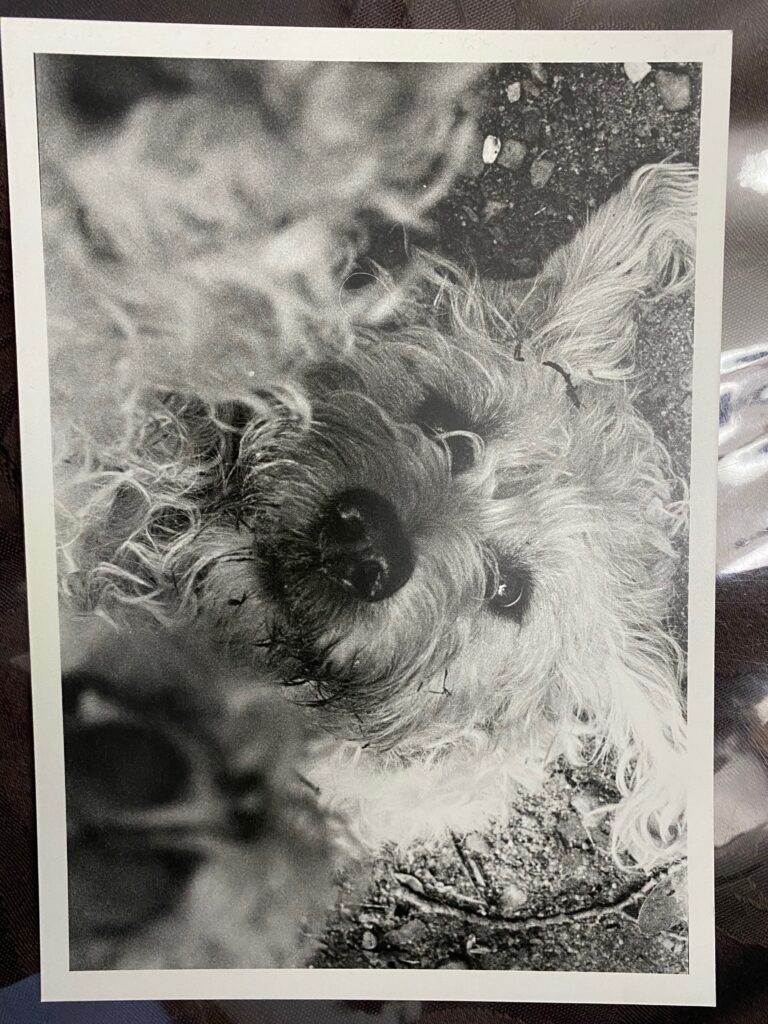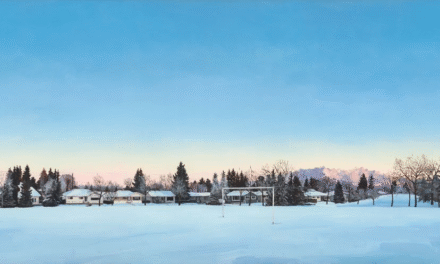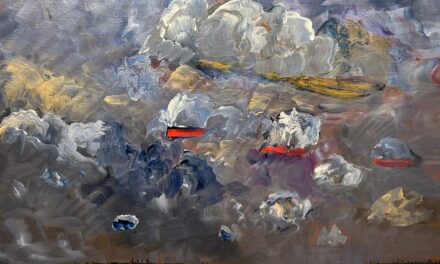David Baron’s Journey with Film

photo: Carelyn Kostyk
interview by Carelyn Kostyk
“When I was in grade six, I went to a church garage sale and there was projector. It was $5 and I didn’t understand it at all, but I bought it and took it home.
“My parents were pretty upset that I brought this huge machine home, but I spent a lot of time figuring it out, and it inspired me to start a film collection because I wanted to watch things on it. This was like 1996 or 1997 so most films were getting discarded. So, I started collecting them as people would throw them out.”
David Baron’s journey with film photography began at a very young age, kickstarting what would eventually be a lifelong passion. As he tells me this story, I can only imagine him in grade six, showing up at his house with this big machine, and I can’t help but laugh at the image. He explains to me that ever since then, he’s been a big fan of both film photographs and film videos.
When I ask him how he started collecting film videos in particular, one memory stands out to David, in which he, as twelve-year old, wrote to a library, asking for any films they were discarding.
Much to his luck, the library shipped them, resulting in him receiving hundreds of films—to my amusement, he describes one film about a sex-ed program from the 60s, which doesn’t mention sex at all, instead deigning to give vague ideas about what sex entails rather than teaching anything at all.
To this day, he still has a bookshelf full of films, and I definitely feel as if David is doing his part in conserving vital parts of history in making sure that none of these films ended up in the garbage.
With David’s interest in collecting any and all sorts of film videos, it’s almost natural to see how this turned into a passion for shooting photography and videos. He tells me that his first experience with an actual darkroom was in high school. Despite the exposure to a darkroom, it’s all through trial and error that he managed to learn how to process and develop film photos. No teacher taught him specifically what to do or how to use the different chemicals. Instead, David learnt through the process of making mistakes, trying to fix them, and seeing what happened.
Company: Spotlight Productions
Director: Neil Grahn
Director of Photography: David Baron
Now, in his thirties, he works an award-winning cinematographer, but he still says that film photography is a passion of his. Though lots of people would wonder why someone would want to delve into such a time-consuming, almost old-fashioned skill, he says that he takes film photos because, unlike digital photographs, there’s something permanent about a film photo.
“There’s a whole chemical process that happens when you shoot with film, and it connects you to the real world. The light goes through a physical lens, touches this material that chemically reacts, then I put it through more chemical reactions. At no point, does it stop being connected to the real world. There’s a whole chain of contact.”
He continues, “You treat film photography differently than you do digital photos. You treat film with more respect. With digital, it’s more disposable because if you don’t like the photo, you just delete it after. With film, you have to make a decision, and that decision of whether to take the photo or not results in the final photograph meaning more.”
David doesn’t just take film photos—he tells me that he’s also shot a few videos on film. While it has been becoming more common nowadays to hear of people delving into film photography again, it’s rare to hear about someone shooting videos on film. David, however, is more than willing to take the challenge.
Company: Moving Artistry Productions
Director: Justin Brunelle
Director of Photography: David Baron
“I’ve shot about two or three weddings on film.” He goes on about how it’s not something he’d want to do full-time, but that when he gets the chance, he does enjoy shooting videos on film.
Whether it’s film photography or film videos however, what is blatantly obvious is that film is David’s passion, so it’s almost natural to find out that he built his own darkroom this past year.
“I’ve been picking at it slowly, and there’s a lot of custom pieces, and wiring and plumbing that had to be done,” he tells me.
Inside the darkroom, he shows me the different features. He explains how he built the sink himself, and how the angles of the sink are perfectly set-up so that every bit of liquid will be sent into the drain. He explains how the room is set to be at a perfect temperature for keeping the photos safe—as well as ensuring that there’s no changes in the chemicals he uses. While I’ll admit that I don’t know all of the specifics of a darkroom, it’s obvious that this project has had a lot of love poured into it.
David points to COVID-19 as being one of the main reasons why he’s managed to finish his darkroom so quickly. While there are many downsides to this pandemic, I think there’s a lot of us who would say that one upside is that it’s given us the time to work on projects that we’d put aside in the past. And for David, that’s exactly what happened. He’s managed to not only work on his photography more, but to finally finish building his very own darkroom.
As we exit the room, saying our goodbyes, I can hear the awe in my voice. I’ve had lots of hobbies in the past that I’ve considered picking up again—photography being one of them—but I won’t lie: film photography is definitely looking more interesting!
However, I can admit that for David, film is more than just a hobby—it’s a passion. He was nice enough to let me try the process of dunking the image into the developer, stop bath, and fixer chemicals, and though I move around the room awkwardly, his movements are skilled and easy as he shows me how to develop a photograph.

photo: Samantha Quantz
It’s now been several days since I’ve been in that darkroom and developed a photograph, but the experience still sticks in my mind. Who knows?
Maybe David Baron has kickstarted my own passion for film photography!
David Baron’s website



